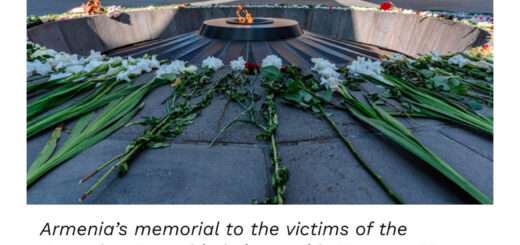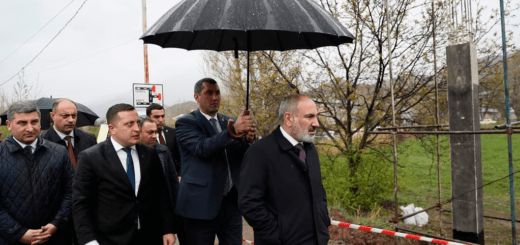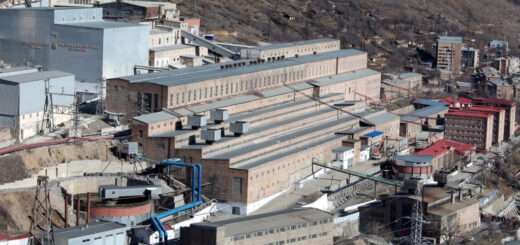Does Azerbaijan Want Peace With Armenia

As part of an effort to burnish his image on the world stage, President Trump has used the conflict between Armenia and Azerbaijan to present himself as a peacemaker. While there is no denying Trump’s desire for peace, recent headlines from the South Caucasus paint a contradictory picture. On the one hand, a framework for a peace agreement brokered by President Trump between Armenia and Azerbaijan has been largely finalized. On the other hand, the final signing remains in limbo, with ongoing tensions and mutual distrust clouding the path to formal peace. This suspicion is exacerbated by alarming rhetoric from Azerbaijan’s President Ilham Aliyev. His recent statements referring to Armenia as Azerbaijan’s “historical lands” threaten to derail any potential reconciliation.
This fits a dangerous pattern of Aliyev’s historical revisionism, notably the claim that Armenia is “Western Azerbaijan.” This narrative has been exposed in leaked documents, revealing a long-term, coordinated, state-sponsored campaign by Azerbaijan designed to undermine Armenia’s sovereignty by organizing events, hiring communications consultants, and producing messaging materials. While initially conceived as a humanitarian effort to support the return of Azerbaijanis who left Armenia during the collapse of the Soviet Union, it evolved into a state-directed communication strategy with clear irredentist goals.
It should come as no surprise then that Aliyev cynically uses this type of language to shape public opinion at home, distracting his populace from domestic social and economic problems. He employs an autocratic playbook to foment hyper-nationalism, embedding a narrative within Azerbaijan’s education system that teaches future generations to hate Armenians and believe they are historical enemies occupying ancient Azerbaijani lands.
Such reckless propaganda is not only dangerous but fundamentally destabilizes the peace process. It weakens the principle of mutual recognition of sovereign borders, which is a foundational basis for any peace treaty. What’s more, Aliyev sends a conflicting and aggressive message when he refers to cities like Yerevan or Armenia’s Syunik province as historical Azerbaijani territories, even as official statements from Azerbaijan’s Foreign Ministry ostensibly engage in peace talks. True peace requires consistent commitment, not rhetorical escalation.
Or put simply, words matter.
However, it is not just Aliyev’s rhetoric that cast doubt about his plans for peace, but his actions. Azerbaijan has spent the last five years trying to eradicate Armenian presence in the South Caucasus. The campaign began with the 2020 war over Nagorno-Karabakh
(Artsakh), culminating in the 2023 ethnic cleansing of more than 120,000 Armenians—the largest displacement of Armenians since the 1915 Armenian Genocide.
Following the takeover, Azerbaijan initiated a systematic campaign of cultural erasure targeting Armenian churches, monasteries, and historical sites.
Furthermore, Azerbaijan’s commitment to peace is belied by its continued illegal detention of Armenian political prisoners, including humanitarian Ruben Vardanyan, arrested without due process while trying to leave Nagorno-Karabakh. How can there be peace when innocent Armenians sit in Azeri jails?
Despite these blatant human rights violations, Azerbaijan continues to use its vast financial clout to sway and curry favor with international stakeholders as they turn a blind eye to their crimes. A prime example is its troubling relationship with the Vatican. In the past year, new agreements included substantial Azerbaijani funding to restore holy sites in Rome and Europe. In return, the Vatican has provided Azerbaijan a platform for controversial conferences and events that seek to erase and delegitimize the indigenous roots of Armenians and portray them as foreign to their own ancestral lands.
This type of “caviar diplomacy” demonstrates Azerbaijan’s ongoing strategy of leveraging its natural resources for geopolitical influence, challenging the sincerity of its peace commitments.
So, how can Aliyev’s use of historical narratives and territorial claims in political discourse significantly impact the peace process?
For starters, it can be perceived as a direct challenge to Armenia’s sovereignty and internationally recognized borders. Such rhetoric can contribute to an atmosphere of mistrust and suspicion, making it more difficult to achieve breakthroughs in negotiations and potentially increasing the risk of renewed conflict. And it can complicate ongoing negotiations focused on specific issues like border delimitation and regional connectivity.
That is why is hard to take Azerbaijan at face value when they say that they are committed to peace. A lasting peace can only be built on a foundation of mutual respect and a shared commitment to a future that respects people and borders. Based on his words and actions, Aliyev does not sound like a man who wants peace. He sounds like a man who wants Armenia.
Stephan Pechdimaldji is a communications strategist living in the San Francisco Bay Area. He is a first-generation Armenian American and grandson of survivors of the Armenian genocide. You can follow him on X at @spechdimaldji.





